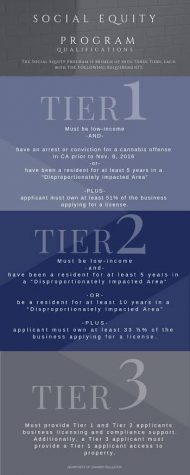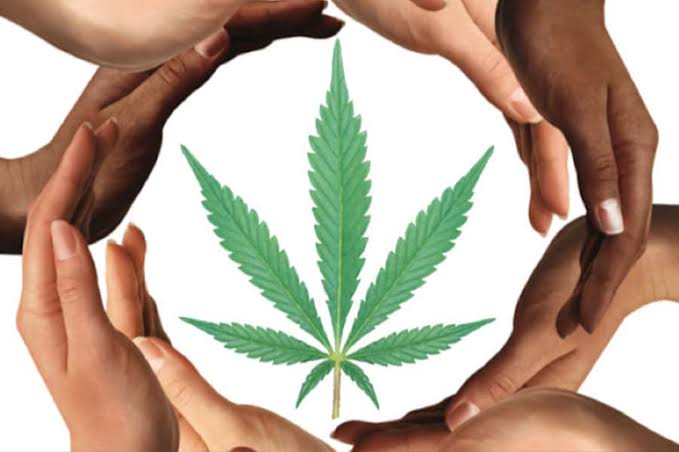Los Angeles’ cannabis equity program has failed to meet its target
The goal of Los Angeles’ Cannabis Social Equity Program is “to promote equitable ownership and employment opportunities in the cannabis industry in order to decrease disparities in life outcomes for marginalized communities, and to address the disproportionate impacts of the War on Drugs in those communities.”
When California legalized recreational cannabis under the terms of Proposition 64 back in 2016, nobody would have anticipated that it would take so long for former cannabis convicts and financially restrained individuals to receive cannabis social equity licenses.
Acknowledged as the largest cannabis industry in the United States, California’s cannabis industry framework was supposed to reduce “barriers to entry into the legal, regulated market” for those who lack the funds to launch a business, not to mention those who have been previously convicted of a cannabis-related crime and reside in a less privileged community.
However, Los Angeles’ cannabis social-equity program is failing. The program has not met its target, according to a recent announcement from the Minority Cannabis Business Association. The city’s equity programs went into effect in September of last year; Senate Bill 1294 was signed into law by Governor Jerry Brown at this time.
SB 1294 granted cities in California with social equity programs to apply for the necessary funding required to kickstart a career as a budding cannabis entrepreneur. The funds made available for applicants is coming directly out of the state’s 2018 budget, with $10 million allocated to California’s cannabis social equity program.
What was the purpose of Los Angeles’ cannabis social equity program?
Home to over four million people, the largest city in California invites individuals from disproportionately impacted communities to apply for acceptance into the Social Equity Program (SEP). Just like other social equity programs that have been established in cannabis-friendly states across the U.S., SEP was initiated to ensure statewide residents are treated equally in regards to joining the cannabis industry as a business professional.
The main motive of the City of Los Angeles’ effort is to simplify the process of becoming an entrepreneur in California’s cannabis industry, which is expected to be worth $5.6 billion by the year 2020.
 Black, Hispanic and Latino communities worst affected by the War on Drugs were given an opportunity to be a part of the flourishing cannabis industry thanks to SEP, which strives “to promote equitable ownership and employment opportunities in the cannabis industry in order to decrease disparities in life outcomes for marginalized communities, and to address the disproportionate impacts of the War on Drugs in those communities.”
Black, Hispanic and Latino communities worst affected by the War on Drugs were given an opportunity to be a part of the flourishing cannabis industry thanks to SEP, which strives “to promote equitable ownership and employment opportunities in the cannabis industry in order to decrease disparities in life outcomes for marginalized communities, and to address the disproportionate impacts of the War on Drugs in those communities.”
The SEP eliminates certain financial barriers and offers an equal opportunity for people from all backgrounds to profit from legal weed, as opposed to being tempted by other avenues, such as the black market. However, it seems that disproportionately impacted individuals from affected communities haven’t been given priority over entrepreneurs who don’t have a pot conviction and/or financial restraints.
No social equity licenses have been awarded to cannabis businesses in Los Angeles
In spite of the fair employment and business ownership opportunities that SEP claims to provide former cannabis convicts with, no social equity licenses have been granted as of yet.
It has been over two years since ordinances were initially passed by the Los Angeles City Council, but applicants have been left waiting. The residents of less fortunate black, Hispanic and Latino neighborhoods are infuriated and upset about delays in issuing social equity cannabis licenses in Los Angeles.
Meanwhile, fancy cannabis dispensaries like Buds and Roses Collective, Green Earth Collective and MedMen are raking in the cash. Hopeful SEP applicants who have already started renting storefronts in the Los Angeles have been left in the unknown about whether or not they will actually be able to operate a business from their stores and precisely when.
While it remains uncertain as to why members of the Los Angeles City Council are delaying SEP applications, it is likely because of the rules surrounding the social equity program application process.
Since pretty much anyone with a criminal record can apply under the cannabis SEP, allegations have been made against city officials. Critics believe that officials are probably putting wealthy entrepreneurs and law-abiding citizens first, so as to prevent them from being discouraged by SEP’s lenient eligibility criteria.
The three-tiered application process might also be too complicated for applicants. Back in April, the City Council voted to start dealing with the application backlog by early September.








